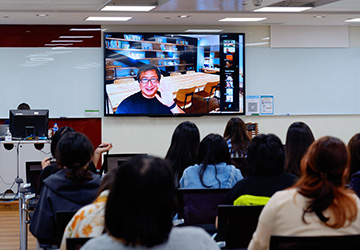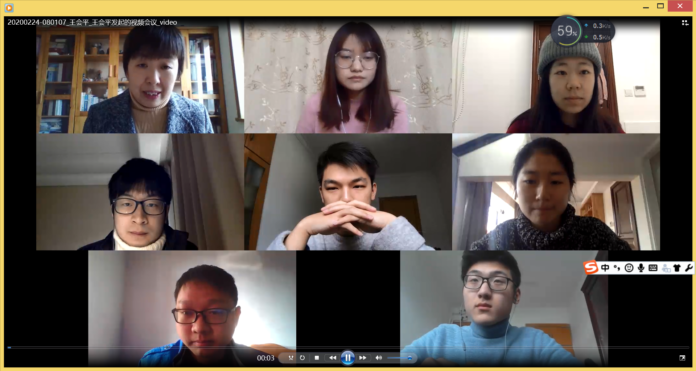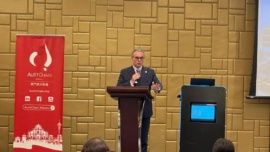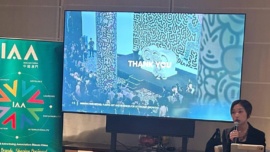It was the first time that distance learning was used intensively. Very few were prepared
Macau Business | January 2023 | Special Report | Three years of pandemic – What changed?
Schools in Macau were closed for about 3 months [from January 24, 2020 until May/June] , and, as happened in a little while around the world, the overwhelming majority of teachers and students discovered distance learning, via online – Macau started online teaching in the second week of February, even before mainland China did.
In Macau, pretty much as elsewhere, the system did not please students, teachers, or parents..
A study carried out jointly by researchers from Macau and Hong Kong sought to know the association between digital health literacy (in relation to COVID-19) and psychological well-being of university students amid the COVID-19 pandemic.
“Psychological well-being of the students was low,” they found.
“With the suspension of regular teaching in schools and most activities moving online during the pandemic, students lost a vital part of their routine such as being around their peers and teachers. These changes have been found to affect students’ well-being negatively,” the document reads.
On the teacher’s side, we can highlight some of the vivid Reflections on Online Teaching under the COVID-19 Pandemic, published by Professor Tat Iong Lam of Macao Polytechnic University (MPU).
“Having tried such large-scale online teaching for four months for the first time in over three decades of teaching, the author has also gone through the unprecedented challenges, caused by her lack of experience and skills in online teaching, as well as problems of lack of students’ self-discipline and lower effectiveness of online teaching and learning, etc,” she wrote.
“At the beginning of online class, the teaching and learning environment suddenly changed from familiar bricks-and-mortar classrooms to unfamiliar virtual ones, which caused great inconvenience and challenges to both the teacher and the students, who couldn’t have face-to-face conversations in class as before,” Professor Lam added. “As we know, the dialogue or conversation between teachers and students in class is the best way for students to get the help from their teachers directly, and it is also the best opportunity for teachers to teach in different methods according to students’ different aptitudes and requests.”
According to the author’s experience, no matter how hard she tried to do all she could to make her online teaching better, the truth was that a few students never attended the author’s online class, because they knew that online class attendance was not compulsory like their traditional class, which required 70 per cent of the attendance rate for the whole semester at MPU,” Professor Lam stated.
“To solve the problems existing in online teaching, firstly, in order to help teachers become qualified for the new challenge, professional online teaching training and policy support from government and school authorities are necessary and helpful for teachers,” she proposed.
We still need to know the perspective of the parents.
“Technology in the (…) classroom is not a trend, it is an unavoidable reality, which we will not get rid of as soon as the pandemic is under control and a return to the dreamed of ‘normality’ is possible” – Júlio Reis Jatobá
The Director of the Education Research Center at the University of Macau, Zhou Mingming, said last March that “parents are concerned about issues such as children’s self-regulation and whether virtual classes will be as effective as face-to-face learning. Some parents are obliged to supervise virtual classes and homework,” she added.
“Technology and, in the case of our discussion, technologies for synchronous online classes provide greater contact between teaching actors. As we have seen, this deeper contact, this sharing of intimacies, is not always necessarily friendly or productive, although it can be it,” defends Professor Julio Reis Jatobá, University of Macau, in a chapter of a book published a few weeks ago.
“In short, technology in the Portuguese as a Foreign Language classroom [the subject of his research] is not a trend, it is an unavoidable reality, which we will not get rid of as soon as the pandemic is under control and a return to the dreamed of ‘normality’ is possible,” also understands this element of the Department of Portuguese, Faculty of Arts and Humanities.
“There still remains an elusive and deceptively simple question to be answered,” adds the researcher in the final considerations: “How to make technology in (post)covidian times a more human resource, which fosters one of the basic objectives of learning language: interaction with the Other?”
Hybrid teaching

At local universities, the second semester of the 2019/20 academic year (February to June) ended up taking place in the distance learning mode.
From then on, tertiary education institutions started to offer both in-person classes and online classes at the same time. This was mostly because there were so many overseas students who couldn’t get into the city.
A research project conducted by a group of four Honours College students, supervised by Edmond Yeung, then attached to the University of Macau, carried out a study on this hybrid system, having listened to teachers and students.
Teachers reported that “they have difficulties in engaging both online and offline students at the same time while manipulating all technology” because “the physical and mental load of the teachers was greatly increased.” In addition, “to ensure that the learning outcomes of online students were met, some teachers had to set aside extra time to repeat the concept separately for their online students.”
Regarding technological challenges, “teachers expressed that hybrid teaching was indeed a mix of two shows at the same time.” As hybrid teaching requires the right equipment and knowledge to manage it, “unfortunately, such needs were too overwhelming to be met in the period of the study. Thus, the teachers and their teaching assistants had to deal with most of the technical challenges by themselves.”
From the view of the students, “the thing that put online students off was being ignored. Problems include the inability to listen to the instructors, not able to get responses from the instructor immediately, and even could not interact with their classmates who were wearing masks.”
So, concludes the study, “hybrid teaching requires a good structure and a good balance together.”
Previous | Non-resident workers, the “expendables” the city needs
























